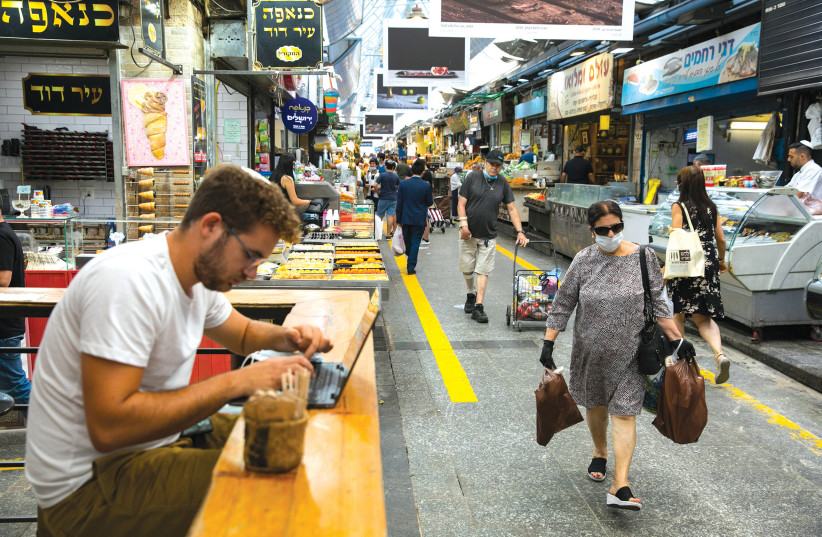Last Saturday, April 30, marked the 49th anniversary of my aliya. When I arrived in Jerusalem, there were very few tall buildings and the maximum height of most apartment complexes was four floors. If memory serves me correctly, there was even a city ordinance to that effect.
Buses were not air conditioned and smoking was permitted.
Supermarkets were few and far between, and grocery stores stocked less than half the variety of products currently available.
Hygiene was not a priority and pre-wrapped bread was seldom on display. If anyone stopped to think how many people had thumbed the bread to test its freshness, those worried about germs and dirt would never buy bread, but would learn to bake their own.
Security has always been a problem in Israel, but security precautions were not exercised to anywhere near the extent to which they are now. Fences – even in the Prime Minister’s Residence – were low. Many front doors featured glass panels. Intercom safety systems were almost non-existent and the obsession with privacy was unknown. Since then, many short-cuts from one street to another have been blocked because they often entailed using passageways in building complexes, whose tenants thought use of the short cuts was an invasion of privacy.

Mahaneh Yehuda market, which used to be a really earthy place, with the authentic aura of a country village, has since become gentrified. It still has many attractions, but it has lost its character.
The train from what is now known as the First Station, ran all the way to Haifa. It actually took much longer than traveling by bus, but it was a very picturesque winding journey.
Few people had cars and walking long distances was par for the course. Curiously, there were not many bikes or scooters either. Nor were there the fancy baby carriages that take up so much room on the pavement, bus and the light rail – not to mention supermarket aisles - today. Most mothers put their babies and toddlers into fold-up strollers, so that when they got on the bus, the infant was transferred to mama’s lap, and the stroller was folded and pushed under the seat.
But, worse than the baby carriages are the so-called scooters (not to be confused with electric korkinets), which were initially designed to make life easier for people with mobility problems, but are now in much wider and more diverse use. They’re not really scooters at all. They are actually jeeps, which depending on their size, can seat between one to four people. Some are so elaborate they are actually mini-cars and can go at almost the same speed. They are driven on the pavement, along with wheelchairs, bicycles, electric scooters, skateboards, roller skates, and Segways.
To make matters worse, there is now a Segway tricycle taxi with a single wheel passenger seat at the back, which means that this contraption takes up length, as well as width.
Some pavements are wide enough to be able to accommodate pedestrians and wheelers. But the majority of Jerusalem pavements are not only narrow, but in such disgusting condition that pedestrians prefer to walk in the road, rather than risk tripping on a pot-hole.
One of the reasons that pavements were invented was to protect the public from horses, which at the time were the most common form of transport.
But at least if a horse was coming up behind you, it was possible to be forewarned by the sound of its hooves pounding on the ground.
Bicycles are often silent and come whizzing past unexpectedly. Worse still, motorcyclists and bicycle riders seem to believe that rules were made to be broken and do not in general observe traffic regulations.
When their path is blocked on a congested road when they occasionally veer off the pavement, they weave their way through some of the cars and continue their journey on the pavement. They ignore traffic lights, often crossing the road on a red light, and too often are riding irresponsibly with young children sitting behind them or perched on the handlebars.
More than 40 years ago, one could stroll at a leisurely pace along the pavement and daydream. Forget about daydreaming these days. It’s too dangerous.
Many Jerusalemites don’t like what’s happened to the city, which under the current administration has lost much of its character. As far as pedestrians go, it has also lost freedom of movement. I am so fed up with having to stand aside for an oncoming vehicle.
Please give me back my pavement. ❖
